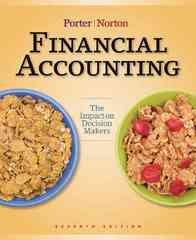
Part 3 - Derivatives and Risk Management (10 marks) The company has an obligation to buy a new license for $8 million dollars in 3 years time. They would like to put some money away now at a certain interest rate to ensure they will have enough to meet their liability. The market yield to maturity is 6% for all maturities, with annual compounding. The company would like to make an investment now to enable the fund to meet this obligation in 3 years' time. Company is considering investment in one of the following two bonds: Bond Face Value ($) Maturity Coupon rate (years) JA 1000 3 0 B 1000 3 7% (paid annually) Further, they are also concerned about changes in the rate at which they can reinvest. In order to effectively immunize their position, please answer the following questions: 1. Which of the two bonds provides better 'immunisation' against interest rate risk? Calculate durations for bond A and bond B and explain. (keep the answer to the nearest 2 decimal places) (3 marks) 2. Suppose that the yield decreased from 9% to 8% suddenly. How does the 'immunisation' work in this case? Do you expect the company will still be able to meet the obligation? (keep the answer to the nearest 2 decimal places) (3 marks) 3. The company needs to buy significant quantities of electricity for its operations. This is a major component of the costs that they face, and they would like to hedge their exposure. They are given two options: a futures contract which would allow them to lock in a price today of $35/KWH of electricity, for deliver in 1 years time, and a 1 year option with a cost of $6 per KwH hedged, and an exercise of $30 per KwH. i) Draw a profit/loss diagram, with Electricity Price at expiry on the horizontal axis, and profit/loss per litre on the vertical axis (1.5 marks) ii) At what final electricity price does the company prefer options? At what final prices do they prefer futures? At what final price are they indifferent? (2.5 marks) Part 3 - Derivatives and Risk Management (10 marks) The company has an obligation to buy a new license for $8 million dollars in 3 years time. They would like to put some money away now at a certain interest rate to ensure they will have enough to meet their liability. The market yield to maturity is 6% for all maturities, with annual compounding. The company would like to make an investment now to enable the fund to meet this obligation in 3 years' time. Company is considering investment in one of the following two bonds: Bond Face Value ($) Maturity Coupon rate (years) JA 1000 3 0 B 1000 3 7% (paid annually) Further, they are also concerned about changes in the rate at which they can reinvest. In order to effectively immunize their position, please answer the following questions: 1. Which of the two bonds provides better 'immunisation' against interest rate risk? Calculate durations for bond A and bond B and explain. (keep the answer to the nearest 2 decimal places) (3 marks) 2. Suppose that the yield decreased from 9% to 8% suddenly. How does the 'immunisation' work in this case? Do you expect the company will still be able to meet the obligation? (keep the answer to the nearest 2 decimal places) (3 marks) 3. The company needs to buy significant quantities of electricity for its operations. This is a major component of the costs that they face, and they would like to hedge their exposure. They are given two options: a futures contract which would allow them to lock in a price today of $35/KWH of electricity, for deliver in 1 years time, and a 1 year option with a cost of $6 per KwH hedged, and an exercise of $30 per KwH. i) Draw a profit/loss diagram, with Electricity Price at expiry on the horizontal axis, and profit/loss per litre on the vertical axis (1.5 marks) ii) At what final electricity price does the company prefer options? At what final prices do they prefer futures? At what final price are they indifferent? (2.5 marks)







